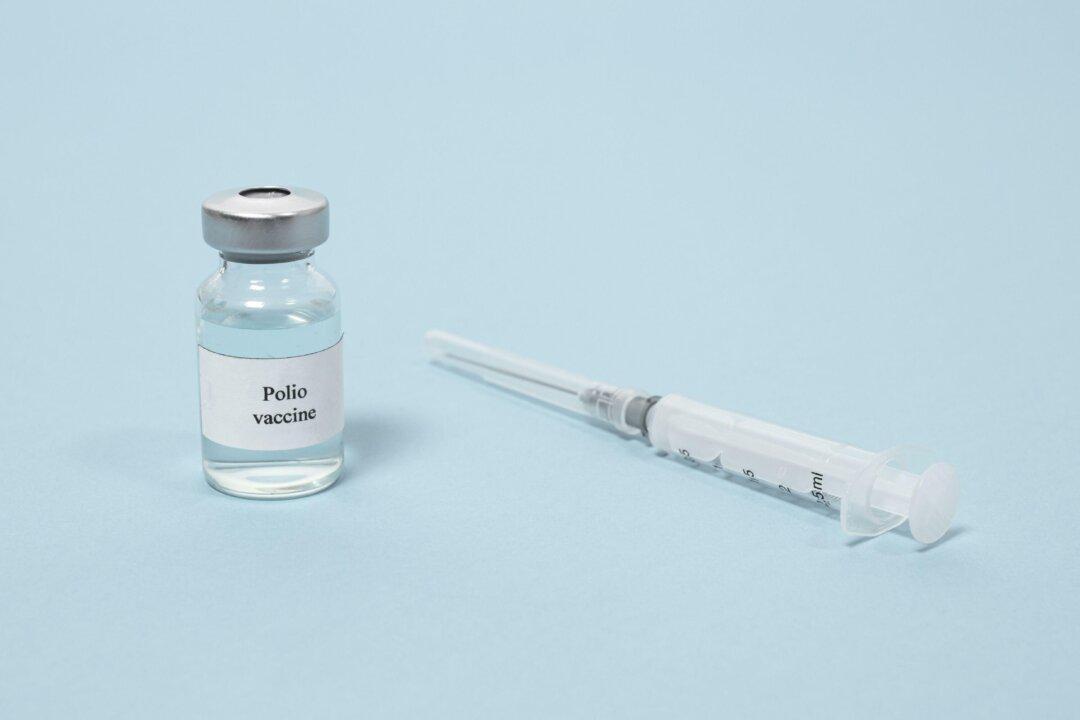The UK’s health authorities on Wednesday called on parents to have their children updated on polio vaccines as they investigate a possible outbreak of the disease.
The UK Heath Security Agency (UKHSA) said several closely-related polioviruses were found in sewage samples taken between February and May from the London Beckton Sewage Treatment Works, which serves around 4 million people in north and east London.





